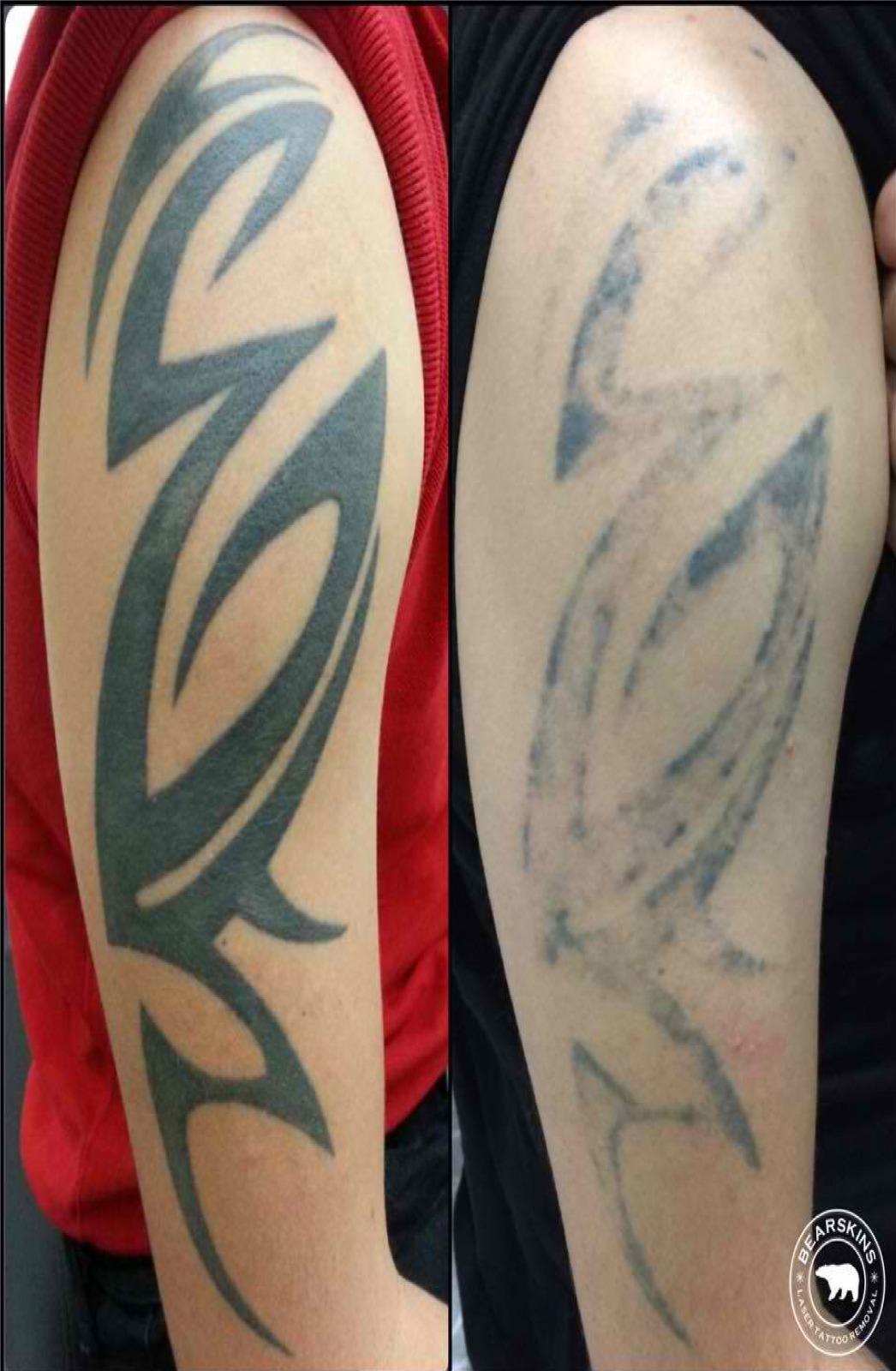Laser tattoo removal in Kenya is a medical procedure that uses laser technology to fade or remove unwanted tattoos from the skin. It has become one of the most popular methods for tattoo removal in Kenya. This is due to its effectiveness and relatively minimal side effects compared to other techniques.
The process involves targeting the tattooed area with high-intensity laser beams. The laser emits specific wavelengths of light that are absorbed by the tattoo ink pigments. As the light is absorbed, it breaks down the ink particles into smaller fragments.
Laser Tattoo Removal Process at Afyacore
- Consultation: Begin by consulting with a qualified Afyacore medical professional or dermatologist specializing in laser tattoo removal. They will assess your tattoo, skin type, and medical history to determine if you are a suitable candidate for the procedure.
- Preparation: Before the session, the practitioner will clean the tattooed area and provide you with protective eyewear to shield your eyes from the laser light.
- Laser Treatment: During the session, the practitioner will pass a high-intensity laser device over the tattooed area, emitting specific wavelengths of light. The laser light is absorbed by the tattoo ink pigments, causing them to break down into smaller fragments.
- Fragment Elimination: The fragmented ink particles are recognized as foreign substances by the body’s immune system. Over time, the immune system works to remove the ink particles through the lymphatic system, primarily with the help of the lymph nodes.
- Multiple Sessions: Complete tattoo removal usually requires multiple laser treatment sessions. The number of sessions depends on factors such as the size, colour, depth, and age of the tattoo. Typically, sessions are spaced several weeks apart to allow for proper healing and ink elimination.
- Post-Treatment Effects: After each session, you may experience temporary side effects, including redness, swelling, and mild discomfort in the treated area. These effects typically subside within a few days. Temporary whitening or blistering of the skin may also occur.
- Healing and Recovery: It’s essential to follow post-treatment care instructions provided by your practitioner, such as keeping the treated area clean, avoiding sun exposure, and applying prescribed ointments or creams to aid in healing.
- Results and Limitations: Complete removal of a tattoo may not always be possible, as some ink colours and types may be more resistant to laser treatment. Additionally, individual factors like skin type and pre-existing skin conditions can affect the outcome. Your practitioner will discuss the expected results and any potential limitations based on your specific case.
- Maintenance and Follow-up: Once the desired level of tattoo removal is achieved, follow-up visits may be scheduled to monitor the healing process and assess if additional sessions are necessary.
The Removal at Afyacore Clinic
When considering laser tattoo removal, it’s crucial to seek treatment from qualified and experienced professionals. Afyacore in Kenya is a reputable establishment that specializes in laser tattoo removal. They have specialized medics who are licensed and trained to perform laser procedures, ensuring safe and effective treatment.
By choosing Afyacore, you can benefit from the expertise of their medical professionals and receive personalized care throughout the tattoo removal process. They will assess your specific case, provide guidance on the number of sessions needed, and address any concerns or questions you may have.
Remember to consult with the professionals at Afyacore to determine if you are a suitable candidate for laser tattoo removal and to receive the best possible care for your tattoo removal journey.


